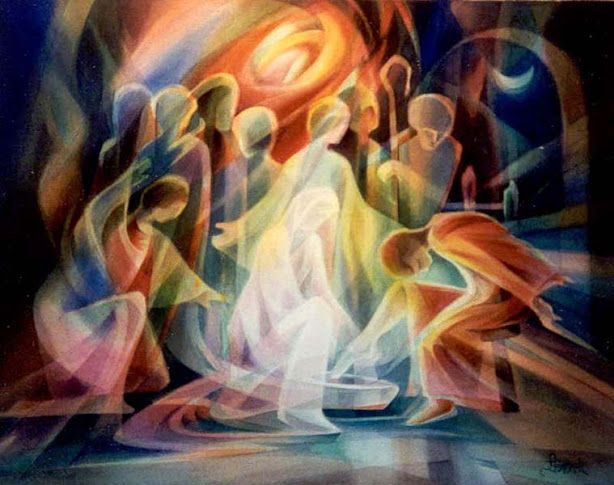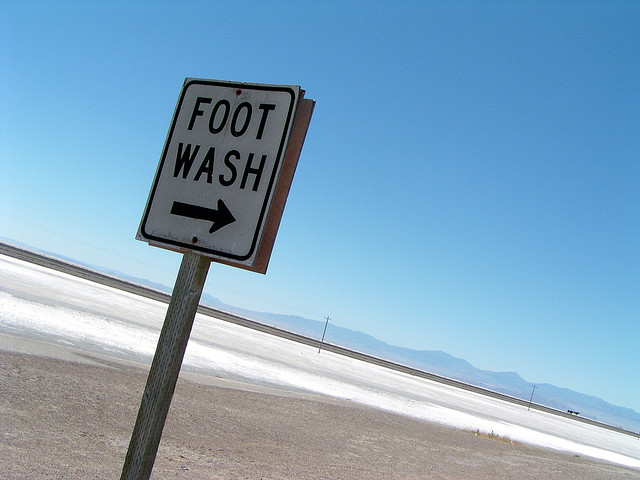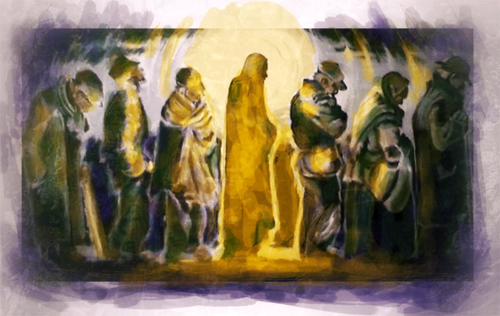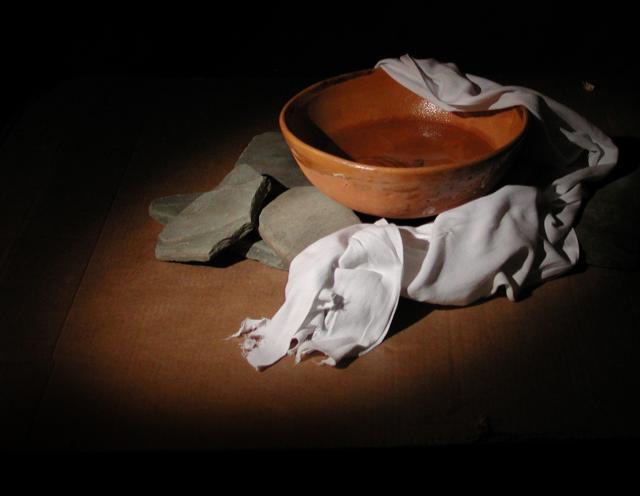Maundy Thursday: The Last Shall be First

By Sean McConnell
————————————-
I think more than any other, Maundy Thursday services are the ones I remember most from my childhood. I always thought they were peculiar and mysterious. Since I’m a PK (priest’s kid), it was my dad I remember most. He would sit on the floor and wash the feet of the lay readers and acolytes, who would all join with him to wash the feet of the congregation. The water was always warm and it took a long time, and it felt good. The first time I was old enough to help wash the feet of others, I remember that some women would sit down and take off their shoes and leave their hose on. Others simply would not participate for their own reasons.
After the service, when all of the bowls and towels would be taken away, my dad would wrap one last towel around his waist and get a bucket and scrub brush and he would scrub the altar clean. Then all of the lights were turned off and we would process out quietly in candlelight.

To me, the cleaning of the altar seemed perfectly normal. It was something done once a year. Foot washing, though, took a much longer time for me to understand. Why did we do this odd thing? Why did people appear to be so uncomfortable participating in this thing that was simply a part of doing church?
When I was older, and started attending different Episcopal churches, I encountered a vast array of practices on Maundy Thursday. More often than not, the foot washing was absent from the rest of the liturgy. Sometimes it was done symbolically. Rarely, though, did I find other congregations who followed the same practice as the church of my childhood. Occasionally, I discovered practices that were even more elaborate.

There are scholars who tell us of the significance of the practice in ancient times. When a guest would visit a home, a slave would meet them at the door to wash their feet. If the household had no slaves, then the guest would be given the means to wash their own feet. Never would someone of superior status wash the feet of someone of inferior status. When Jesus washed the feet of his disciples (John 13), he reinforced what he had been teaching all along, that the Kingdom of God has a radically different hierarchy.
I have been looking my whole life for opportunities to participate in this upside down hierarchy… especially within the Church. That is how I ended up at Episcopal Relief & Development. Our programs don’t seek to further the old model of top-down development. We seek and find expertise within cultures where we work. Often, we provide training, but that is only to give people the skills to improve food supplies, alleviate hunger and create economic opportunities within their own communities.
How can we follow the final commandment of Jesus? Today is the day to get a soft, clean towel, and to fill the basin with warm, soapy water and sit on the floor.

—————————
Sean McConnell is Director of Engagement for Episcopal Relief & Development.
Images: Top, Foot Wash sign, Jay Peeples(www.flickr.com/photos/jpeepz). Middle 1, Electronic iPad image created by Rev. Dr. Marty Carney from his oil painting after the 1950 woodcut by Fritz Eichenberg, "Christ of the Breadlines."Middle 2, Washing of the Feet: Light to the Darkness, Leszek Forczek. Bottom, Basin of water, FCGKokomo.


